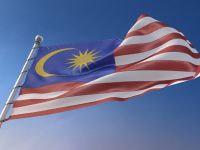An armed gang wearing military uniforms massacred 22 people and injured two others in an overnight attack on a village south of the Algerian capital, local people said Thursday.
The killers gunned down 11 people as they were celebrating a wedding near Larba on the rich Mitidja agricultural plain about 30 kilometres (20 miles) from Algiers.
The attackers then entered a house and killed 11 more people either with automatic weapons or by slitting their throats, witnesses told AFP.
Two people were wounded, including a young girl who was kidnapped but managed to escape her captors though she had a bullet wound.
"A group of six to nine men wearing battledress asked us for food and water," said a witness who had been at the wedding and asked not to be named.
"When they came into the house, one of them said: 'They've got no cigarettes. You can begin'," another witness said.
"We realised that this was a sort of password meaning that we had no weapons and they could kill us without fear," he added.
The Mitidja plain has been spared massacres and attacks by armed groups for several months, but between 1993 and 1999 it was a stronghold of Islamist guerrillas who terrorized the whole region.
Such attacks are generally blamed on radical armed Islamists at war with the secular authorities in Algeria, which has been gripped by fundamentalist insurgency since 1992.
In the past month, armed gangs have been operating increasingly close to Algiers itself. On August 29, a bomb blast killed two people and wounded more than 30 in the old Casbah district of the capital.
Days later, seven people were massacred in an raid on the holiday resort of Zeralda, 30 kilometers along the coast west of Algiers, in a district used by the military for leave with their families.
Since the beginning of the month, at least 150 people have died in attacks and clashes in Algeria, according to a toll compiled from press reports and the few figures released by security forces.
Some of the recent violence has been pinned on the hardline Armed Islamic Group (GIA) led Antar Zouabri, whose forces have operated in military gear.
About two months after taking office, current President Abdelaziz Bouteflika in July 1999 offered a conditional amnesty to the insurgents. An estimated 4,000 people reportedly laid down their arms.
The Islamic Salvation Army (AIS) -- armed wing of the FIS, a political front which was poised to win a general election in January 1992 before the army called it off -- was disbanded.
Many of those who "repented" live in the hills overlooking Larba.
On September 15, national security chief Ali Tounsi said that "repentant terrorists have been joining the armed groups again", but he gave no figures.
The GIA and a splinter movement, the Salafist Group for Preaching and Salvation (GSPC), have refused any dealings with the authorities. The GIA in particular is accused of slaughtering civilians as part of a terror campaign.
Bouteflika in 1999 put the death toll from the insurgency at some 100,000, but the private press today -- in the absence of official figures -- estimate that at least 150,000 people have lost their lives in the past nine years -- LARBA, Algeria (AFP)
© 2001 Al Bawaba (www.albawaba.com)







